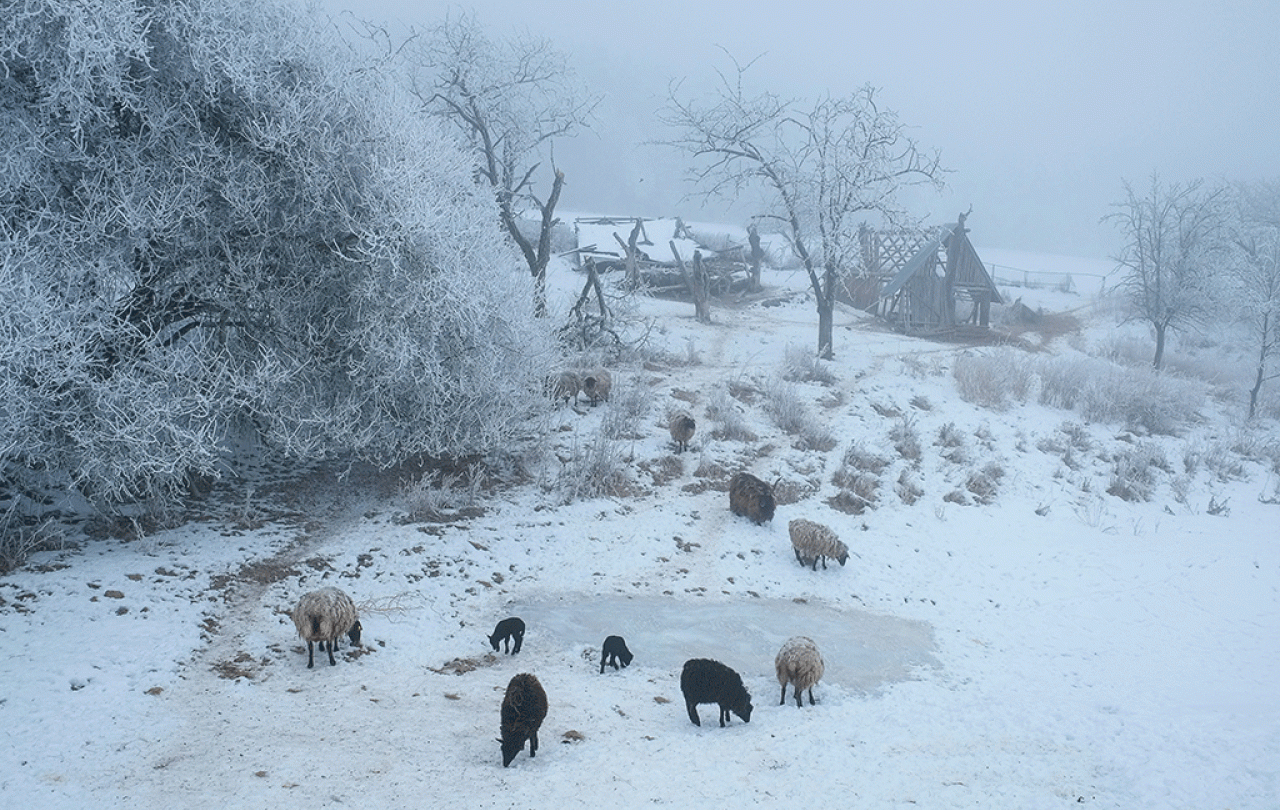
The Oscars are a funny old thing, aren’t they? Every year, I find myself wondering why we care about them so much.
And sure, we could go for the low-hanging answers: because the show is brimming with glamour, because it’s packed with celebrity, because we may be treated to Ryan Gosling performing his Barbie anthem with Slash. We’ve been trained to gravitate toward such things, and that makes the Oscars the jackpot. And so, while shiny escapism is an undeniable aspect of the enormous hype attached to the Academy Awards, I think it would be unfair to assume that these are the only reasons we are still so drawn to this event.
If we’re meaning-making creatures, and I believe that we are, then these films mean something.
I once heard renowned mythologist, Dr Martin Shaw, say that ‘story is the best way to talk about almost anything’, and I wonder if cinema is evidence of how heartily we agree. The stories that are being crafted and told are important, they matter, they actually affect things. Or, at least, the good ones do.
And this year, when I assess the films that swept up the majority of the prizes at the 96th Academy Awards, I noticed a trend. I noticed that these films are essentially humans talking to humans about what it means to be human.
In many ways, for better or for worse, we spent 2023 telling stories about ourselves. Allow me to break down what I mean.
These movies tell us of our own brokenness, our own breaking-things-ness.
Oppenheimer, which won six awards, and Zone of Interest, which was the first British film to win the Oscar for Best International Film – they tell our darkest stories. We know the 20th Century horrors of the dropping of the atomic bomb and the Holocaust, but these two movies introduce us to the faces behind the horror. And, what’s more, they hauntingly remind us that those faces could have been ours. They introduce us, not to monsters that we can keep at a comfortable distance, but to people who sanction, create and do the unimaginable, and then go home for dinner with their children.
People did these things. People like us. These movies tell us of our own brokenness, our own breaking-things-ness. They remind us that the possibility of evil is not beyond us, it is within us, and that the most dangerous thing one could do is to believe otherwise.
But then there was the acutely tender The Holdovers, and the deeply profound Past Lives. These movies tell of our gentleness, our fragility, our innate need for intimacy; they remind us that we were designed to be known and loved. They reintroduce us to our deepest and most innate needs - The Holdovers, in particular, tells us of the sacrality of relationship. Its success has me wondering if a story of three lonely people forced to spend Christmas together in an empty boarding school could tell us more about what our souls require than any academic deep dive.
Yet again, these films seek to tell you the story of you; they aim to be windows into the souls of the characters, while also acting as mirrors through which we can catch glimpses of our own.
Each movie, in one way or another, was a wrestle with personhood. What makes us, us?
And finally, there were two films, Barbie and Poor Things, which, to criminally over-simplify them, are the stories of two women (or, rather, one toy and one new-born baby in the body of a grown woman… don’t ask) who are working out what it means to be a person. Both Barbie and Bella Baxter walk through worlds that are entirely new to them, but completely familiar to their audiences. They assess the good and the bad of humanity as if utterly detached from it, until they are forced to confront their own place in the worlds that they are slowly coming to terms with. As is written into the script of Poor Things and was read aloud over a montage at the Oscars ceremony,
‘We must experience everything. Not just the good, but degradation, horror, sadness. This makes us whole Bella, makes us people of substance. Not flighty, untouched children. Then we can know the world.’
(Is it me, or is there a little touch of – ‘just take a bite of the apple, Eve’ in there?)
So, you see my point – this year, in the world of film, humans talked to other humans about what it means to be human. Each movie, in one way or another, was a wrestle with personhood. What makes us, us? Where does our propensity for goodness come from? How are we this clever? And how are we this clueless? Why do we do such evil things? And why do we have such tender needs? What is the difference between the worst and the best that we could possibly be? What and why are we? Or, in the simple words of Billie Eilish’s Oscar-scooping song – what were we made for?
And listen, perhaps this is always somewhat the case. Maybe every film can be boiled down this way, and maybe the Oscars are just a storm in a particularly glitzy tea cup. And maybe nobody would be talking about it this morning had Slash not been involved.
But I just have this sense that these movies, and the prizes that they won, mean something. These existential-yearning kind of films, I’m not sure they’re going anywhere anytime soon – if we’re wondering what we were made for in such public places, I’m wondering if it’s because we’re also wondering the same thing in the most personal places.
If you’re asking me, last night was filled with as many cultural heart-cries as it was prizes.





